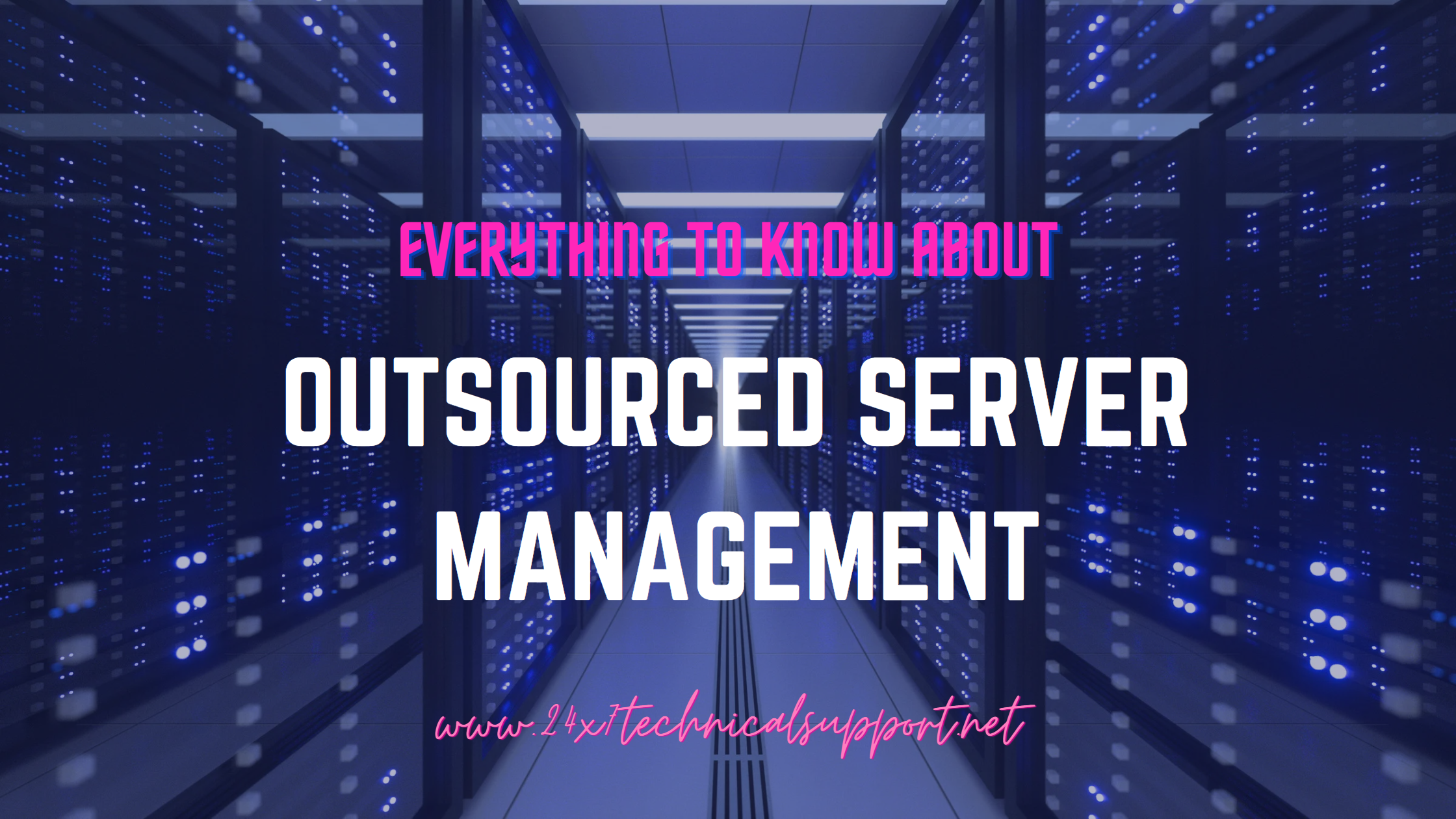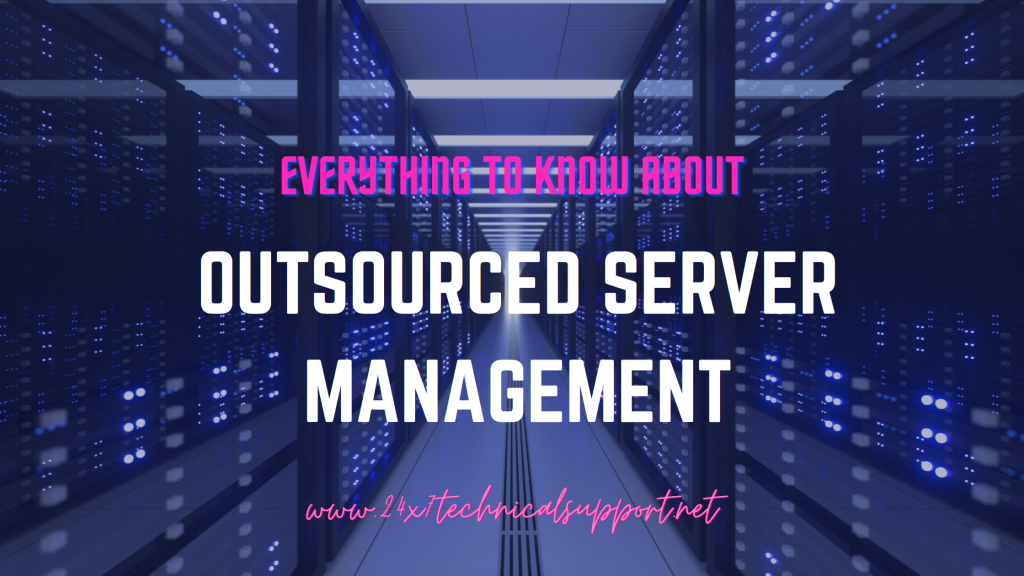
Introduction to Outsourced Server Management
In today’s digital landscape, businesses heavily rely on their servers to store and process critical data. However, managing servers efficiently requires specialized expertise, time, and resources. This is where outsourced server management comes into play. By outsourcing server management tasks to dedicated service providers, businesses can offload the burden of server maintenance and focus on core operations. In this article, we will explore the benefits, considerations, and best practices associated with outsourced server management.

Benefits of Outsourced Server Management
Outsourcing server management brings numerous advantages to businesses. Firstly, it allows organizations to leverage the expertise of professionals who specialize in server administration. These experts possess in-depth knowledge of various server platforms and can ensure optimal performance, security, and uptime. Additionally, outsourcing server management eliminates the need for businesses to hire and train an in-house team, reducing operational costs significantly. It also provides 24/7 support, ensuring immediate response and issue resolution, leading to enhanced reliability and customer satisfaction.
Factors to Consider When Outsourcing Server Management
Before selecting an outsourced server management provider, it is crucial to consider several factors. Firstly, assess the provider’s experience and reputation in the industry. Look for certifications, customer testimonials, and case studies to ensure their reliability and competence. Evaluate the range of services offered, such as server monitoring, backup and recovery, software updates, and security audits. Compatibility with your existing server infrastructure and the ability to scale as your business grows are also important considerations.
Choosing the Right Outsourced Server Management Provider
Selecting the right outsourced server management provider is a critical decision. Start by gathering recommendations from peers or industry experts. Conduct thorough research on potential providers, comparing their offerings, pricing models, and support capabilities. It is essential to engage in detailed discussions with each provider to understand their approach, response times, and communication channels. Look for a provider that aligns with your business goals, offers customized solutions, and has a proactive approach to server management.
Services Offered by Outsourced Server Management Providers
Outsourced server management providers offer a wide range of services to meet diverse business needs. These may include server monitoring, performance optimization, security and vulnerability management, data backup and disaster recovery, server migrations, load balancing, and troubleshooting. Additionally, some providers offer specialized services such as cloud server management, database administration, and DevOps support. Evaluating the specific services offered by providers will help you identify the ones that align with your business requirements.
Key Features to Look for in Outsourced Server Management
When selecting an outsourced server management provider, certain key features should be considered. Look for providers that offer proactive monitoring to identify and resolve potential issues before they impact your servers. A robust security framework, including regular security audits and patch management, is crucial to safeguard sensitive data. Additionally, the provider should have a responsive and knowledgeable support team available 24/7 to address any server-related concerns promptly. Scalability, flexibility, and transparent pricing models are also vital factors to consider.
Cost Considerations for Outsourced Server Management
Cost is an important consideration when outsourcing server management. While it may seem tempting to choose the cheapest option available, it is crucial to evaluate the value provided by the provider. Remember that server downtime or inadequate security can result in significant financial losses. Consider the long-term benefits and return on investment that a reliable server management provider can offer. It is advisable to opt for a provider that provides flexible pricing models, allowing you to scale resources as needed.
Common Challenges and Solutions in Outsourced Server Management
While outsourcing server management offers many benefits, it also comes with its own set of challenges. Communication and coordination between the business and the service provider can be a hurdle, especially if there is a lack of clear expectations or language barriers. Additionally, ensuring data privacy and compliance with regulations is crucial. Regular communication, establishing service level agreements, and conducting periodic reviews can help address these challenges effectively.
Best Practices for Effective Outsourced Server Management
To maximize the benefits of outsourced server management, it is essential to follow best practices. Clearly define your expectations and goals with the provider, ensuring a shared understanding of your business requirements. Regularly communicate and maintain a strong working relationship to address any concerns promptly. Stay updated on the latest server management trends and technologies, and discuss potential optimizations with your provider. Conduct periodic audits to assess the provider’s performance and ensure compliance with agreed-upon service levels.
Security and Compliance in Outsourced Server Management
Security and compliance are critical aspects of outsourced server management. Ensure that the provider follows industry best practices and standards such as ISO 27001 or SOC 2. Regular security audits, vulnerability assessments, and proactive patch management should be part of the service offering. Consider the provider’s data protection measures, encryption protocols, and disaster recovery plans. Additionally, clearly define data ownership, confidentiality agreements, and access controls in the service level agreement.
Conclusion
Outsourced server management offers businesses a strategic solution to efficiently manage their servers while reducing costs and ensuring optimal performance. By choosing the right provider and following best practices, organizations can focus on their core activities and leave the technical aspects of server management to the experts. As technology continues to evolve, businesses must adapt and embrace the latest trends to stay ahead in the rapidly changing digital landscape.
FAQ
Q: How do I know if my business needs outsourced server management?
A: If you lack the in-house expertise or resources to effectively manage your servers, outsourcing server management can be a valuable solution.
Q: How much does outsourced server management cost?
A: The cost of outsourced server management varies based on factors such as the level of service required, the size of your server infrastructure, and the provider you choose. It is best to discuss pricing models with potential providers.
Q: Is it safe to outsource server management?
A: Yes, it can be safe to outsource server management if you choose a reputable provider that follows industry best practices and maintains high security standards.
Q: Can I customize the services provided by an outsourced server management provider?
A: Yes, many providers offer customizable solutions tailored to your specific business needs. Discuss your requirements with the provider to ensure they can accommodate them.
Q: How often should I review the performance of my outsourced server management provider?
A: It is recommended to conduct periodic reviews, such as quarterly or annually, to assess the provider’s performance, address any concerns, and ensure they are meeting the agreed-upon service levels.